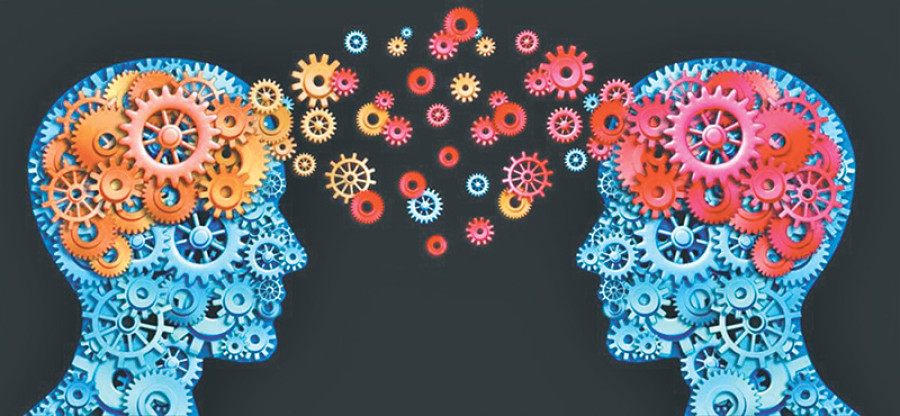Opinion
Ministry of Human Capital
Each year in August, the Global Education & Leadership Foundation (tGELF) hosts an event in Delhi for young leaders from around the world.
Sujeev Shakya
Each year in August, the Global Education & Leadership Foundation (tGELF) hosts an event in Delhi for young leaders from around the world. Shiv Khemka, businessperson turned chief crusader for this foundation, talks about tGELF’s vision to identify and transform 1,000 young people into great leaders. tGELF envisions entrepreneurial leadership with a strong ethical compass. The challenge we all see now is not about how to make more money, but how to put the money we make to use. With technological breakthroughs, artificial intelligence and an ever growing, connected world, the challenge now is to see how we manage the human side of issues, as any technology, communication or artificial intelligence is only as good as the person who is behind it.
Nepal’s challenges
Nepal, has gone through unprecedented transformation over the past 25 years. There has been unprecedented growth in the number of people who have gone through formal education, from engineering and medical degrees to even PhDs. At the same time, wealth has been created for millions of Nepalis; not only have they accumulated wealth, but the valuation of their wealth has gone through the roof. The rise in real estate prices all over the country has created much more wealth for people. With 86 percent of Nepali families owning land, the real estate prices impact almost everyone. The ownership of shares that keep growing in value has been another way of wealth creation. It is difficult to find even three people within one’s friends or family that are worse off now than they were 10, 15, 20 or 25 years ago. However, the people who are better off in terms of education or wealth have been complaining the most.
In the business community, I meet people who complain endlessly about Nepal despite the fact that they have made millions—even billions—in this country. Multinational companies and foreign investors who have made fortunes out of doing business in Nepal, either by selling things to Nepalis or using Nepali labour to produce things for export, also complain a lot. There are companies that invested one or two million dollars a couple of decades ago; today, these investments have multiplied to valuations worth hundreds of millions of dollars. There are very few countries in the world where people have made such fortunes as they have in Nepal. But every time a potential investor meets these companies, they only have negative things to say. People who have been able to rent-seek on political uncertainty have been Nepal’s biggest challenge in the past decade; they use political uncertainty to mask how successful they have been and the fortunes they have made.
In Nepal, the challenge now is not about making money or finding people with the right degrees or education. The challenge is about enabling the right mind-set; to make people see things through an entrepreneurial perspective, whether in the jobs they hold or for the enterprise they are running. It is also about ethical practises. A few weeks ago at the Nepal Responsible Business Summit, a number of discussions were held on ethics and integrity. However, we need to understand that ethics and integrity are binary, either they are present, or they are not. They cannot be measured on a scale of one to 10. For example, questions emerge as to whether one should first look to address the corporate responsibility of waste generated by one’s product—be it packaged food or bottled water—instead of talking about Corporate Social Responsibility. Where is the moral compass of a tobacco company that talks about Corporate Social Responsibility, yet, through hoarding boards across the country, attracts young people to tobacco products and makes them vulnerable?
Recalibration of thought
In the days to come, the opportunities of driving technology and also competing with artificial intelligence will emerge. E-commerce businesses will flourish, and digital payment structures will make the concept of physical currency archaic. Services can be sourced from around the world and sold to anyone in any part of the globe. The opening up of Integrated Check Points (ICP) on the Nepal-India border will change how border trade takes place—especially after demonetisation and the introduction of the Goods & Services Tax (GST) in India. The rent seekers on both sides of the border will have to give in to entrepreneurs who know how to do business in a transparent manner.
All this will require a paradigm shift in how businesspersons look at people; not just as labour that help the investor to earn, but as co-travellers in one’s journey. Different skill sets will be required to handle the responsibility of businesses that will have to compete with firms from different parts of the world. Companies need to invest a lot to change people’s attitude for the better. Learning and development are not things that people can open subsidiaries for and siphon money from. Management of financial capital will only be possible if we manage our human capital well. We have already seen that money does not solve everything, otherwise Nepal would not be reeling under the problems of positive finance and not being able to spend the money that it earns through taxes. Then, of course, there is an entire community that wants to give money to a government that cannot spend it. There is an increasing number of stories on corruption covered by broadsheet dailies, yet the folks in government who partake in sharing this booty will never respond to the voices of criticism. We need to ponder upon what changes are really required in Nepal. Where are the skill gaps? And how do we hold discourse on ethics as we move ahead?
www.sujeevshakya.com




 14.24°C Kathmandu
14.24°C Kathmandu











